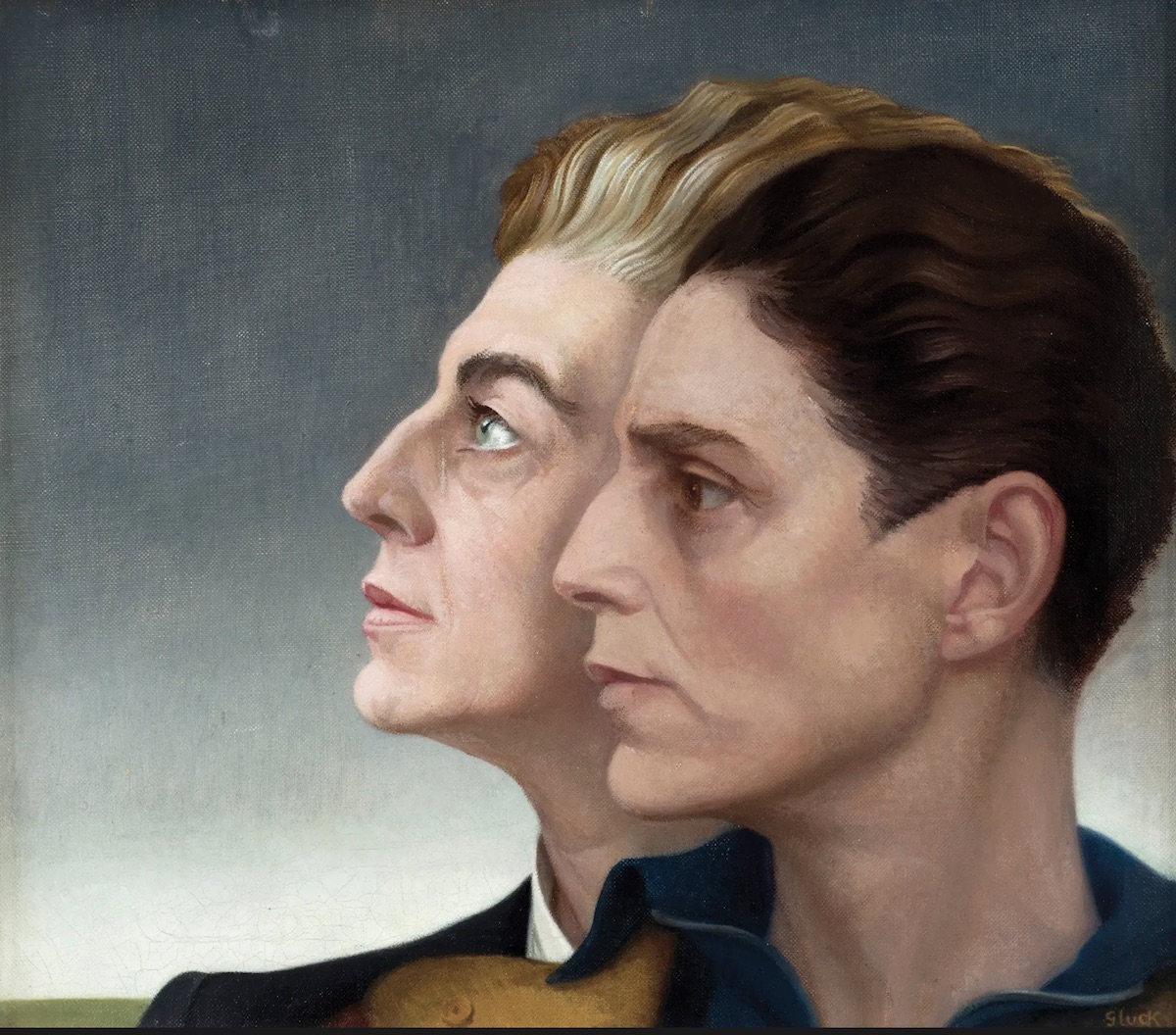Gluck, born Hannah Gluckstein on 13 August 1895 in London, was an enigmatic figure in the world of art and a pioneer in expressing lesbian identity through her work. Gluck’s early life was marked by privilege; she was part of a wealthy and successful family in the fashion industry. However, her comfortable upbringing did not shield her from grappling with her own identity.
From a young age, she felt a profound disconnection from traditional gender roles and expectations. This struggle with identity played a significant role in shaping her artistry. Rejecting the gender she was assigned at birth, she adopted the name “Gluck” and presented herself in a way that challenged societal norms, embracing a more androgynous appearance. (Please note: for the purpose of this article, we will refer to Gluck with She/Her pronouns as these were used by Gluck in our research). Gluck also rejected forenames or honorifics (such as “Miss” or “Mr”), often using the names Peter and Hig. Gluck joined the Lamorna artists’ colony near Penzance and was noted for her portraits and floral paintings, as well as a new design of picture frames. Gluck’s relationships with a number of women included one with Nesta Obermer. The artist’s joint self-portrait with Obermer (Medallion) is viewed as an iconic lesbian artwork.
Gluck’s artistic journey began in the early 20th century, a time when the art world was dominated by male artists. Despite these challenges, Gluck’s talent and unique perspective set her apart. Bold compositions, simplified forms, and keen attention to detail characterised her artistic style. She was a trailblazing painter known for her landscapes, still lifes, and portraits.

One of Gluck’s most distinctive hallmarks was her use of colour. She experimented with vibrant hues and daring colour combinations, creating visually arresting pieces that evoked emotion and captivated viewers. Her work often displayed an innovative approach to composition, bringing a modern sensibility to traditional subjects. However, her most significant and groundbreaking contribution was her exploration of lesbian identity in her art. At a time when homosexuality was illegal for men and unclassified by law for women, it was largely hidden and vilified by society. Gluck fearlessly depicted her own experiences and desires. Her paintings, often portraying intimate moments and romantic relationships between women, challenged societal norms and aimed to normalise same-sex love and desire.
In 1926, Gluck’s painting “Medallion” gained widespread attention and controversy. The portrait depicted her lover, Nesta Obermer, in a direct and unapologetic reference to their relationship. The “YouWe” painting, as it was referred was her public declaration of love and commitment. “Now it is out,” she wrote to Nesta, “and to the rest of the Universe, I call Beware! Beware! We are not to be trifled with.”This bold act of visibility and self-assertion was a watershed moment for queer representation in art.
Gluck’s impact on the art world and LGBTQ+ history cannot be overstated. Her refusal to conform to gender norms, coupled with her daring depictions of lesbian love, paved the way for future LGBTQ+ artists to express their identities openly and authentically. Gluck’s work resonates even today as a powerful reminder of the struggles faced by those who defy societal expectations and express their true selves.
Despite her relatively small body of work, Gluck’s influence has endured. Her art continues to be celebrated for its innovative techniques, striking use of colour, and above all, its unapologetic embrace of queer love and identity. Gluck’s legacy reminds us of the transformative power of art in challenging norms and shaping cultural conversations.
Gluck died on 10 January 1978, but her spirit lives on through her art and the lasting impact she made on the art world and LGBTQ+ representation. Her ability to merge personal identity with artistic expression remains an inspiration for generations of artists and individuals seeking to assert their own truths in a world often resistant to change.
Gluck was honoured with a Google Doodle on her 128th birthday 13 August 2023

